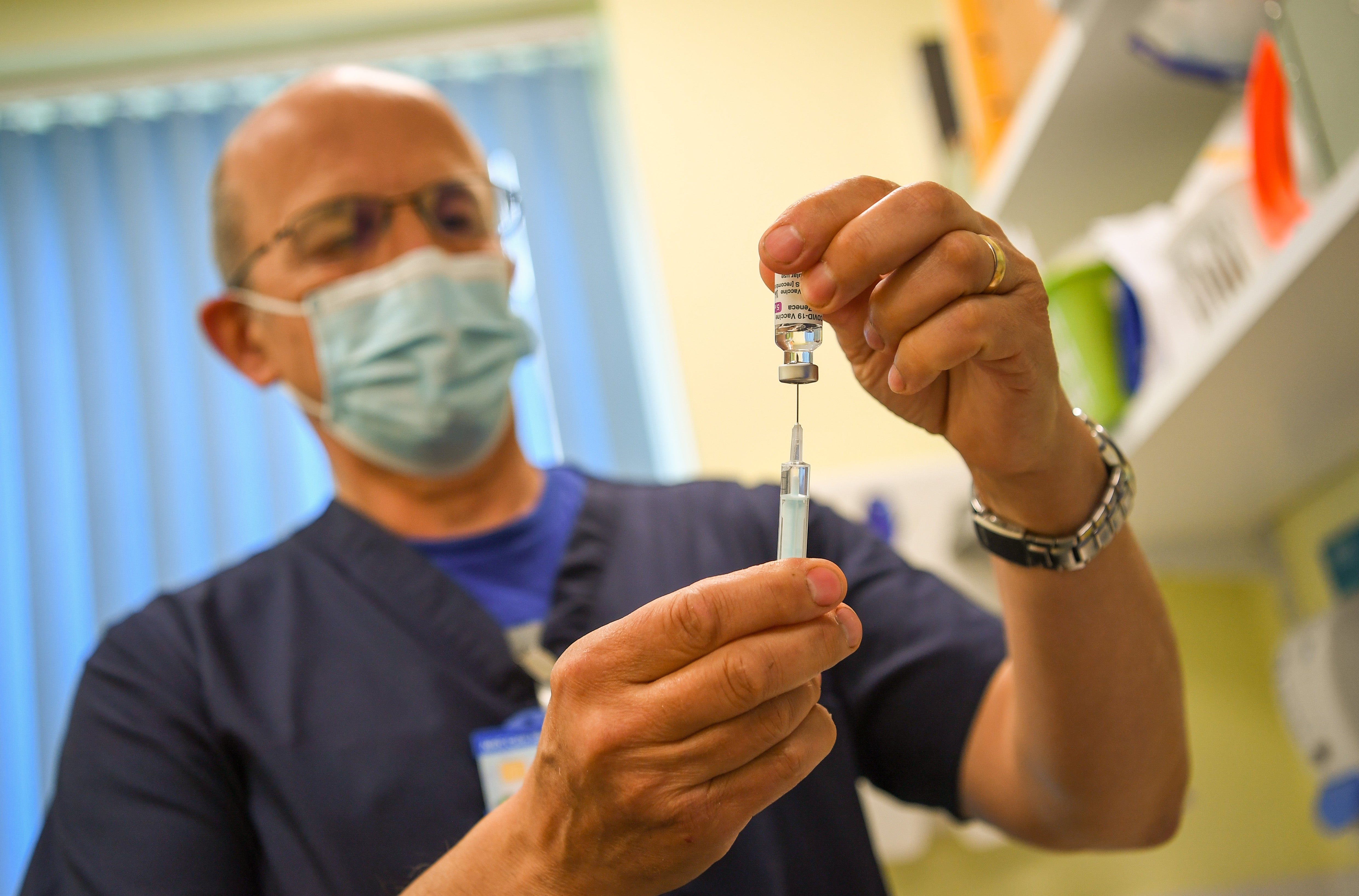Your support helps us to tell the story
From reproductive rights to climate change to Big Tech, The Independent is on the ground when the story is developing. Whether it's investigating the financials of Elon Musk's pro-Trump PAC or producing our latest documentary, 'The A Word', which shines a light on the American women fighting for reproductive rights, we know how important it is to parse out the facts from the messaging.
At such a critical moment in US history, we need reporters on the ground. Your donation allows us to keep sending journalists to speak to both sides of the story.
The Independent is trusted by Americans across the entire political spectrum. And unlike many other quality news outlets, we choose not to lock Americans out of our reporting and analysis with paywalls. We believe quality journalism should be available to everyone, paid for by those who can afford it.
Your support makes all the difference.Government ministers on Wednesday declared the Oxford/AstraZeneca vaccine “safe” after regulators confirmed they were investigating a possible link between the jab and blood clots.
Jeremy Hunt, who chairs parliament’s health select committee, said the Medicines and Healthcare products Regulatory Agency (MHRA) was looking at the vaccine with “urgency”, describing the regulator as “very fleet of foot”.
Researchers on Tuesday night confirmed they had paused a trial looking at whether the injection is suitable for children while MHRA makes its investigation.
University of Oxford, which is carrying out the study, has made clear it has no safety concerns about the trial but was acting out of an abundance of caution.
Government ministers on Wednesday morning took to the airwaves to reassure the public about the vaccine, amid fears that the episode could derail the UK’s vaccine programme by making people more hesitant.
Read more:
Business minister Paul Scully told Sky News: “The AstraZeneca is safe, it’s saved thousands of lives. It’s gone out to millions of people both here in the UK and across the world and it’s continuing to save lives.”
He added: “The regulator does not regulate drugs that it believes are unsafe. There's absolutely every evidence that you are safer taking the vaccine, you are more likely to survive, to live, to stay well.
"And this is the route out of our pandemic. So my message is, when you're invited to do so, as I did, and I've had my first jab, please do go and get that."
The MHRA has recorded around 30 cases of blood clots in people who have been given the vaccine, and seven deaths – but it is not clear whether there is a causal link with the jab. The cases are in the context of millions of doses having been administered, making any risk very small.
However a number of other countries including France and Germany have limited distribution of the vaccine and are only giving it to people over 45 and 60 years old respectively – amid concerns younger people could be more vulnerable.
Other countries like Denmark have suspended use of the vaccine entirely pending decisions by their regulators.
Committee chair Mr Hunt said of the MHRA's decision: "I think people will listen to their advice when it happens today or tomorrow and I think they'll be sensibly British and keep calm and carry on and follow that advice.
"There may or may not be a casual link but even then it's the balance of risk and what we know is that the risk of Covid killing you is much higher for older people and it looks like the risk of this type of blood clot is also lower for older people.
"But there is tremendous public confidence in the vaccine programme ... I think people understand that the vaccine programme is saving lives but they also know that advice changes as we learn more about these vaccines, so they will listen to that advice and follow it."
Speaking to the BBC, he added: "I think there is urgency. I think the one thing you can't say about the MHRA is that they act slowly. They have been very fast and very fleet of foot throughout this pandemic. But I think people do understand that this is a new virus, these are new vaccines, there's no medicine that is 100% safe and that's why you have to look at these very difficult balances of risk."
It comes amid news that another Covid-19 vaccine, known as the Moderna vaccine, will be rolled out in the UK from today.
The jab is reaching Wales first, and is expected to be administered in England "in the next few days".
Mr Scully said that the vaccination programme was still on target to cover all adults in England by the end of July.
The government is also facing a decision on the issue of vaccine passports, which are controversial with MPs and civil liberties campaigners.
Mr Scully appeared to suggest the government was not considering requiring the certificates to access non-essential retail, which a preliminary review of the policy published over the Easter weekend left the door open to.
Asked about the certificates, Mr Scully said: "The work that's being done at the moment is concentrating on ticketed big events and those types of things because they are tougher to get back to a semblance of normal, rather than the high streets with non-essential retail and hospitality, including pubs."

Join our commenting forum
Join thought-provoking conversations, follow other Independent readers and see their replies
Comments